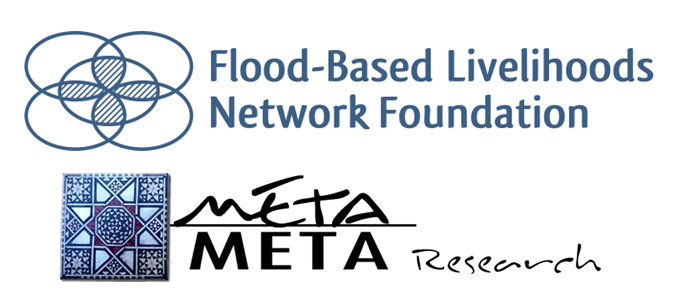Please join us in a free, open webinar on microclimate and microbiology

Successful completion of international training in flood-based farming systems
The 5th edition of the international course ‘Watershed Management and Flood-Based Farming Systems in the Horn of Africa’ was successfully concluded at Mekelle University on August 17th. Thanks to the financial support of GIZ, 33 participants from Somaliland, Puntland and Somalia could participate in theoretical discussions and practical fieldwork.
Designed by Mekelle University, FBLN and MetaMeta, the course consists of six modules; each of them is supported by case studies, hands-on exercises, video shows and experience sharing. In addition, field trips were organised to visit both successful and failed spate irrigation systems and watershed management practices in Tigray. Participants greatly appreciated the practice-oriented approach of the course that will enable them to promote watershed management and flood-based farming in their respective states.

So far, the international course has trained 160 professionals from governmental agencies and NGOs, with trainees coming from Ethiopia, Kenya, Djibouti, Somalia, Somaliland, Uganda and Mali. With the Government of Somaliland having requested more professionals and decision-makers to be trained, Mekelle University is now busy preparing the 6th edition of the international course from this August 31st to September 12th. The participants are sponsored by development partners in both Somaliland and Somalia. Everyone is welcome to attend!
Knowledge and experience sharing on flood-based farming practices in Sudan
Around 60 participants from Sudan’s four flood-based Agricultural Schemes gathered for a workshop last July. During the two-day event, farmers and professionals from the Gash, Delta Toker, Khor Abu Habil and Hud El Silem Agricultural Schemes discussed efficient management and productive use of floods, which they all depend on to sustain their livelihood. The opening session was attended by various national government leaders and representatives of the North Kurdofan Government.
During indoor sessions and fieldwork, various key challenges were identified that are faced by all flood-based Agricultural Schemes in Sudan. These include: 1) the high flow variability and dynamic morphology of flood rivers, 2) invasive weed infestation and sediment deposition in canals and fields, 3) inadequate infrastructure (e.g. canal regulators are in bad shape and insufficient in number, 4) institutions with unclear responsibilities and ineffective mechanisms for water management, and 5) a distinct human resource gap for water allocation and planning. With representatives from high-level Sudanese institutions being present, the meeting offered a platform to share farmers’ experiences and make concerns known to the regional authorities.
Online Course on Water Harvesting for Resilient Farming Systems

The University of Florence and its partner institutions, Jordan’s Hashemite University, Ethiopia’s Mekelle University and MetaMeta, are organising an online course on water harvesting for the 3rd consecutive year. The course will discuss various water harvesting techniques and practices for increased resilience to climate change, improved crop and water productivity as well as enhanced livelihoods of smallholder farmers in arid and semi-arid regions.
Practical information:
- Course available on Moodle platform from February 12th till October 31st 2018
- Deadline for application: December 16th 2017
- Course fee: € 150
- Minimum requirements for admission: High school diploma in related field
The tuition fee may be wavered for participants from water-scarce countries who demonstrate that the registration fee is a hindering factor for enrolment. For further information on course content and requirements, please contact Prof. Elena Bresci [elena.bresci@unifi.it]
Impacts of rainwater harvesting on agricultural ecosystem services
In a recent study, the University of Florence and Mekelle University have published about the impacts of rainwater harvesting and rainwater management on agricultural ecosystem services. The benefits of such measures were assessed to be reductions in soil erosion and soil moisture, causing an increase in pastureland and fodder for livestock. However, the researchers also concluded that the intensification of rainwater harvesting measures in the highlands leads to changes in water allocation downstream as well. Such developments inevitably harm the agricultural systems in the lowlands, and both upstream and downstream farmers who were interviewed for the study reported an increase in conflicts over water. This outcome is relevant, given the large-scale application of rainwater harvesting measures in Tigray’s highlands, and downstream communities’ great dependence on floods from these highlands.

@FBLN_media
FBLN is now sharing FBL news and facts on Twitter. Follow us to find out what is happening around the world to strengthen livelihoods in floodplains. Use the hashtag #FBLN to get your flood-based livelihoods-related message retweeted and spread throughout the FBL community of practice.
